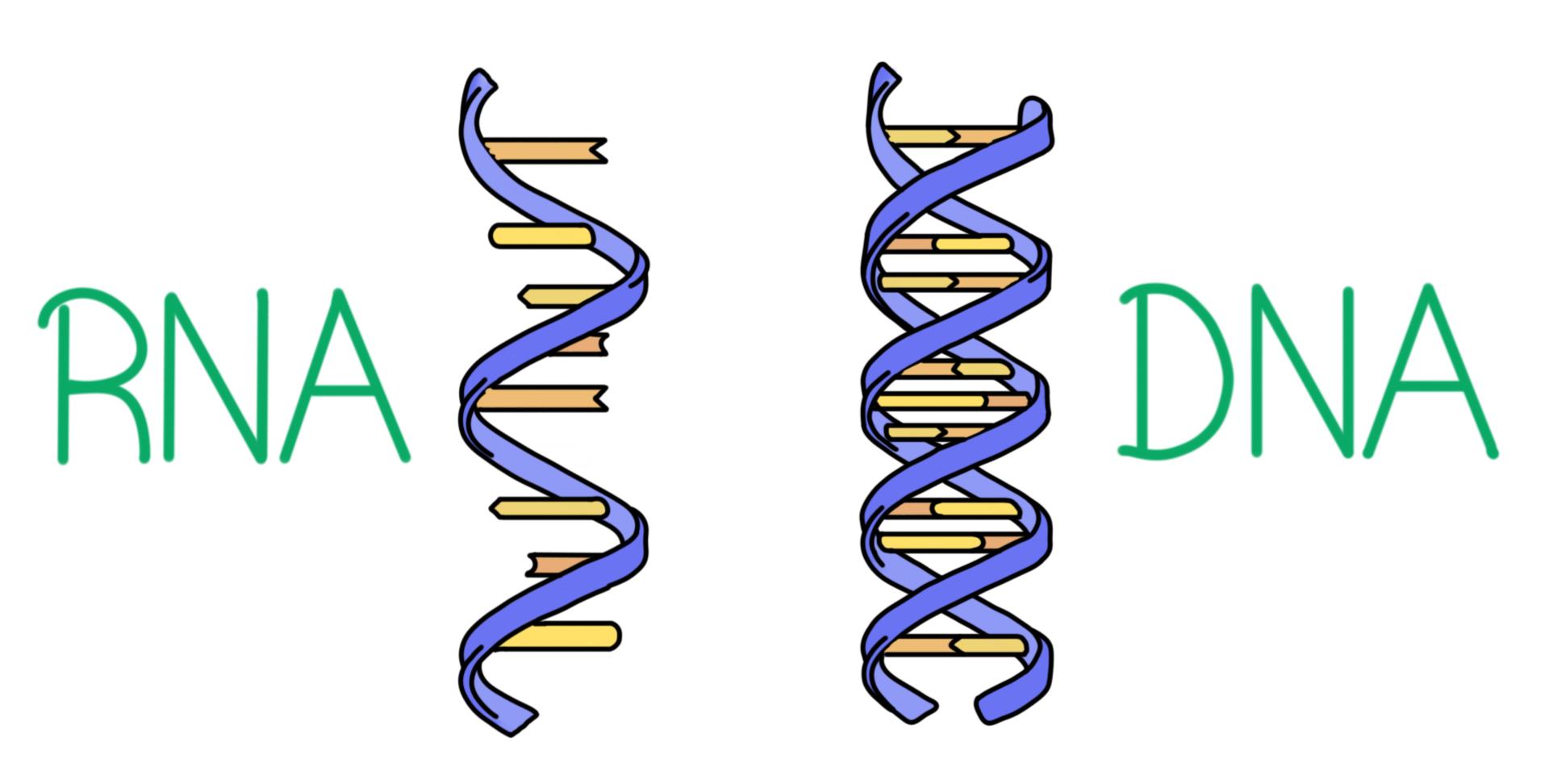We as a part of living organisms are made up of cells and essential nutrients like proteins, minerals, vitamins and much more. But, the most important of all is that nearly every cell in a multicellular living organism owns a full set of DNAs.
DNA in coordination with RNA execute the overall process of protein synthesis. In this article we will be examining the overall concept of DNA and RNA functioning in accordance with how amino acids make up protein synthesis.
What is DNA?
Deoxyribonucleic acid, abbreviated as DNA, is a complex molecule containing all of the information that is important to construct and repair an organism. Almost all living things possess DNA within their cells. In fact, as seen above, nearly every cell in a multicellular organism possesses the full set of DNAs required for that organism.
DNA not only specifies the structure and function of living things, but also it serves as the fundamental component of heredity in organisms of all types. In simple terms, with the reproduction in organisms a part of their DNA structure is passed to the next generation. This flow of all or a part of an organism’s DNA ensures the continuity of their origin from one generation to the another.
What is RNA?
Ribonucleic acid, abbreviated as RNA is also a complex higher molecular weight compound. It works in cellular protein synthesis by replacing DNA, as a transporter of genetic codes.
RNA contains ribose nucleotides adhered by phosphodiester bonds that are able to form strands of varying lengths. The nitrogenous bases in RNA are four important chemicals namely, Adenine, Guanine, Cytosine, And Uracil, that help replace Thymine in DNA.
Ribose sugar from RNA, is a cyclical structure with one oxygen atom attached to each carbon atom. It’s because of the chemically reactive hydroxyl group that is attached to the carbon group from the ribose sugar, that RNA undergoes hydrolysis. DNA does not have a reactive hydroxyl group, which is why DNA is preferred as a genetic information keeper in most organisms.
How are DNA and RNA important for human beings?
DNA and RNA are two main types of nucleic acids. DNA is the genetic asset found in all the living organisms. DNA is placed in the nucleus of eukaryotes and the chloroplasts and mitochondria.
Everything involved in the entire genetic content of a cell is its genome, DNA forms a mixture with histone proteins to form chromatin, the substance of eukaryotic chromosomes, in eukaryotic. A single chromosome consists thousands of genes. These genes maintain the information of protein synthesis. Turning these genes on and off is due to DNA controlling them.
Now coming to the other nucleic acid, RNA, is the vital part of protein synthesis. DNA molecules never leave the nucleus in eukaryotes, instead, they use a mediator to communicate with the rest of the cell. These mediators are messenger RNA, rRNA, tRNA, and microRNA which are involved in protein synthesis and its maintenance.
What is the Concept Behind RNA And DNA Functioning?
As we have seen, both DNA and RNA are made from nucleotides, each containing a five-carbon sugar backbone, a phosphate group, and a nitrogen base. Also, DNA provides the cell ‘s activity code, whereas RNA translates that code into proteins. This in short is protein synthesis. Let’s understand in a better way. The process involves two steps Transcription and Translation.
Transcription takes out a carbon copy of a section of DNA. This copy is known as messenger RNA (mRNA) which must then be further transported outside of the cell nucleus before the next step of protein synthesis may begin.
Translation takes place inside a cell organelle ribosome. Messenger RNA connects with the ribosome under the influence of ribosomal RNA (rRNA) and enzymes. Transfer RNA (tRNA) is that molecule carrying a single amino acid and a coded sequence which is the key of the process.
This coded sequence is a 3 letter codes on the mRNA, which help amino acids to be placed rightly. Every such sequence is called codon. Protein synthesis results into a chain of amino acids that are connected, link by link, in a specific order. This chain is called a polypeptide and is build according to a DNA-based code. The order in which the amino acids are linked is the information written on DNA.
RNA and DNA are both built on a nucleotides foundation and both of them contain four nitrogenous bases as pair. Each DNA strand consists of a chain of connecting nucleotides. Each nucleotide contains sugar, and a nitrogenous base and a phosphate group. There is a total of four different nitrogenous bases in DNA, namely, adenine (A), thymine (T), guanine (G), and cytosine (C).
A strand of DNA is almost always found bonded to another strand of DNA in a double helix. Two strands of DNA are bonded together by their nitrogenous bases, where adenine and thymine bond together and guanine and cytosine bond together.
As three of their four nitrogenous bases are the same, RNA molecules have a base called uracil (U) instead of a thymine base. Uracil replaces the position of thymine and forms complementary pairs with adenine during transcription.
Transcription is the process of making a strand of RNA from a strand of DNA. DNA is again used as a template during transcription. The information that is stored in DNA molecules is rewritten or ‘transcribed’ into a new RNA molecule.
Summing up
Genes contain all the information needed for protein synthesis. This protein production is carried out through two processes: transcription and translation. In Transcription and Translation, the information is taken from DNA and is used to produce proteins. Transcription uses DNA to create RNA.
RNA molecule is the connection between DNA and protein making. This protein synthesis is a process wherein polypeptide chains are formed from single amino acids in the form of codes inside the cell. Lastly, Protein synthesis takes place within the nucleus and ribosomes of a cell and is regulated by DNA and RNA.
 Lifeyet News Lifeyet News
Lifeyet News Lifeyet News





